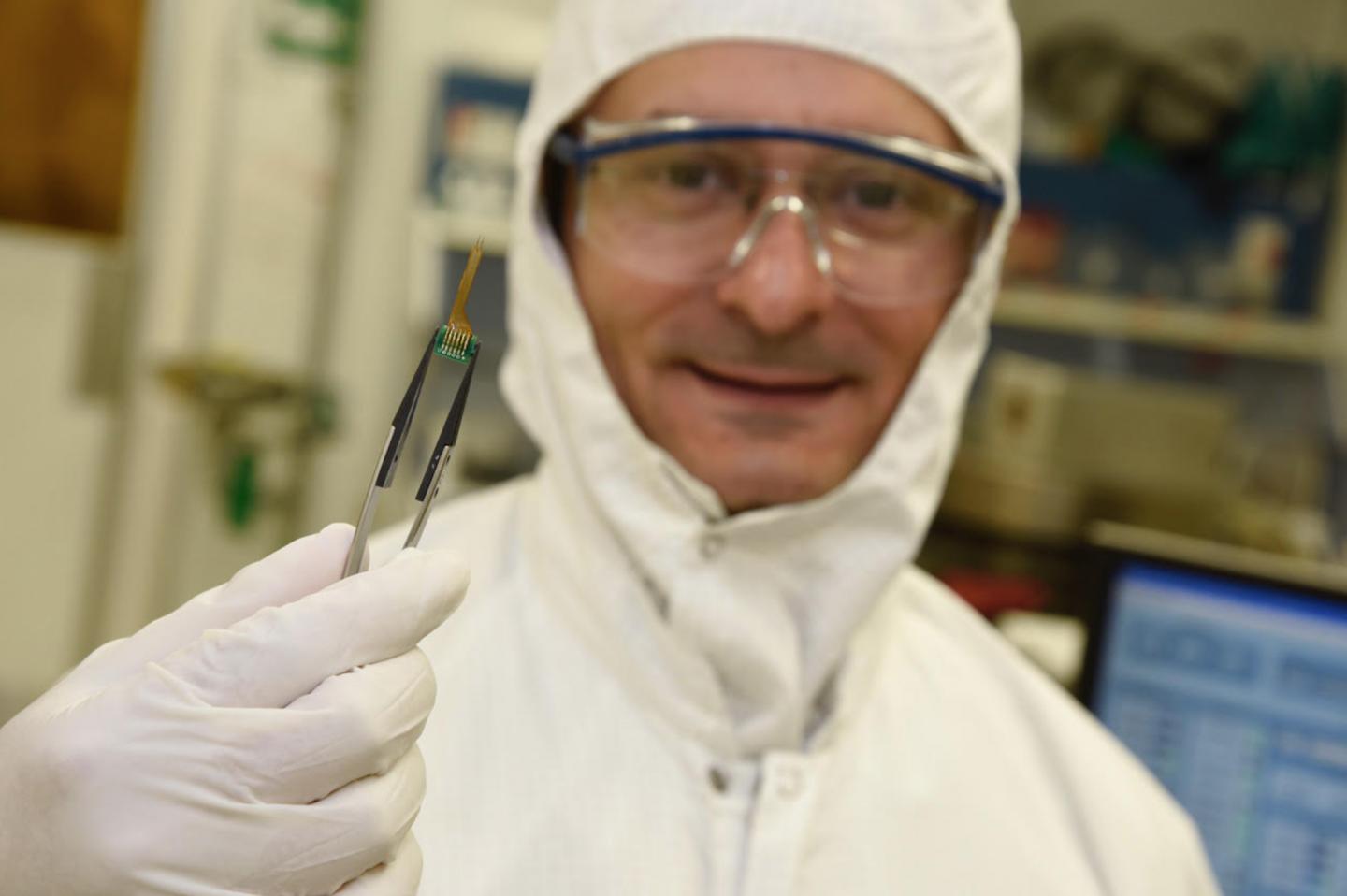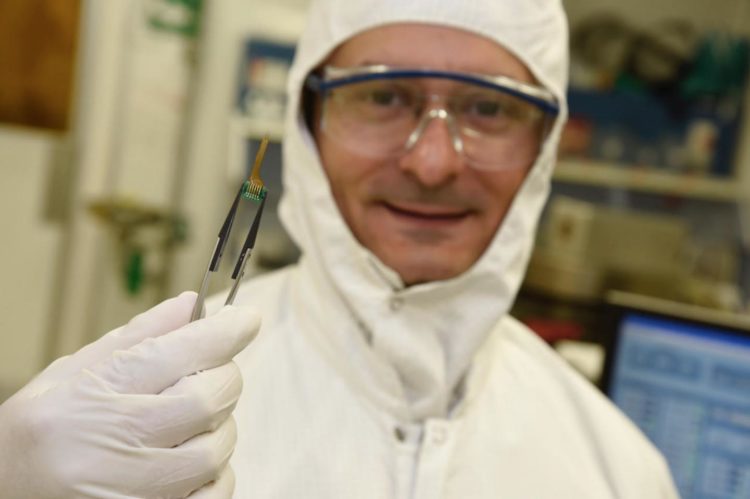
Credit: Novela Neurotech
Toronto, ON–To further develop its wireless electrode for reading from and writing into the brain, Novela Neurotech is pleased to announce a new partnership with the Division of Comparative Medicine at the University of Toronto in Ontario, Canada.
The move signals Novela’s return to its academic R&D roots, allowing the brain-computer interface startup to further optimize its cutting-edge brain implant in animal models under strict research and ethical guidelines. Furthermore, Novela aims to leverage UofT’s critical role in supporting novel neurostimulation research, and foster academic collaboration with Toronto’s leading neuroscience and innovation institutions.
“Although we have invested over 12 years in the development for our brain probe and supporting software platforms, the next step is to fully validate its efficiency and safety in animal models. This will build a knowledge base to ensure quality of treatment for neurological disorders in humans, such as relapsing opioid addiction and chronic pain that can’t be efficiently managed using pharmaceuticals,” says Ray Iskander, CEO of Novela Neurotech.
From Concept to Prototype
Many of the brain’s most difficult disorders are rooted in the electrical misfiring of its circuits. Neurons communicate with each other using precise pulses of electrical activity, which underlies our thinking, learning, memories, emotions and decisions. When these coordinated electrical pulses go awry neurological disorders ensue.
Opioid addiction, for example, is often considered a mental health disorder. But addiction leaves its mark in the electrical activity of certain brain circuits. If scientists can monitor these circuits for signs of cravings, and deliver a precise zap using an electrode, then the brain implant could stop addiction in its tracks–without the explicit effort of the patient. Opioid addiction, now a terrible public health crisis, is one area Novela is heavily invested in.
“We’re at the cusp of the dynamiceutical era,” says Novela’s scientific advisor Dr. Jose Velazquez, who is affiliated with the Ronin Institute in Montclair, NJ. Here, the brain prosthesis functions seamlessly with neurobiology, delivering electrical zaps to correct for malfunctioning neural activity only when needed. These systems, called “closed-loop,” could revolutionize how we treat addiction, chronic pain, major depressive disorder, and epilepsy, among others.
Novela has been on the forefront in developing state-of-the-art brain implants that can both read from and write into neural tissue, a requirement for any closed-loop system. Unlike first-generation implants, Novela’s smart probe is wireless, allowing freedom of movement, and just a fraction of the size of a human fingertip while containing dozens of recording channels.
Rather than using a proprietary data format, the smart probe generates and stores data using the NWB format, which provides a means to share precious neurophysiological data in a way that allows scientists to reap the full benefits. With prototypes already in place, the team is taking the next step in validating the probe’s efficacy in living, moving rodents as a stepping stone to human patients.
By leveraging the Division’s excellent facilities, the team is looking to validate all mechanical and electrical features of the tiny Novela smart probe within the rat brain, and perform pilot recordings and stimulation experiments of brain activity. In addition, because long-term implants can lead to scaring–something the probe design already minimizes–the team will also examine the probe’s safety and functionality over time.
“Because brain probes, especially closed-loop prosthetics, are surgically implanted, we want to ensure the longevity of the implant,” says Iskander.
Results from the study will help further improve the probe’s functionality in terms of electrical, mechanical and software characteristics, said Dr. Salam Gabran, Director of Engineering at Novela, and neuroengineer Dr. Parisa Sabetian.
“The successful validation of the probe in an animal model is critical for studying and solving brain and central nervous system problems, including opioid addiction. Furthermore, these initial neural recordings will allow us to decipher specific parameters within neural recordings, so we can better apply the smart probe to other clinical disorders in the long-term,” they said.
“The Division of Comparative Medicine is one of the largest animal facilities in Canada, fully up-to-date with new techniques and equipment for animal research. By gaining access to their facilities, we now have the ability to significantly accelerate R&D for Novela’s smart probe. We hope to bring its capacities soon to patients with neurological disorders, and foster NeurekaTM moments–the smiles of the patients finally free from the grasp of illness,” says Iskander.
###
Media Contact
Novela Press Team
[email protected]
Original Source
https:/





